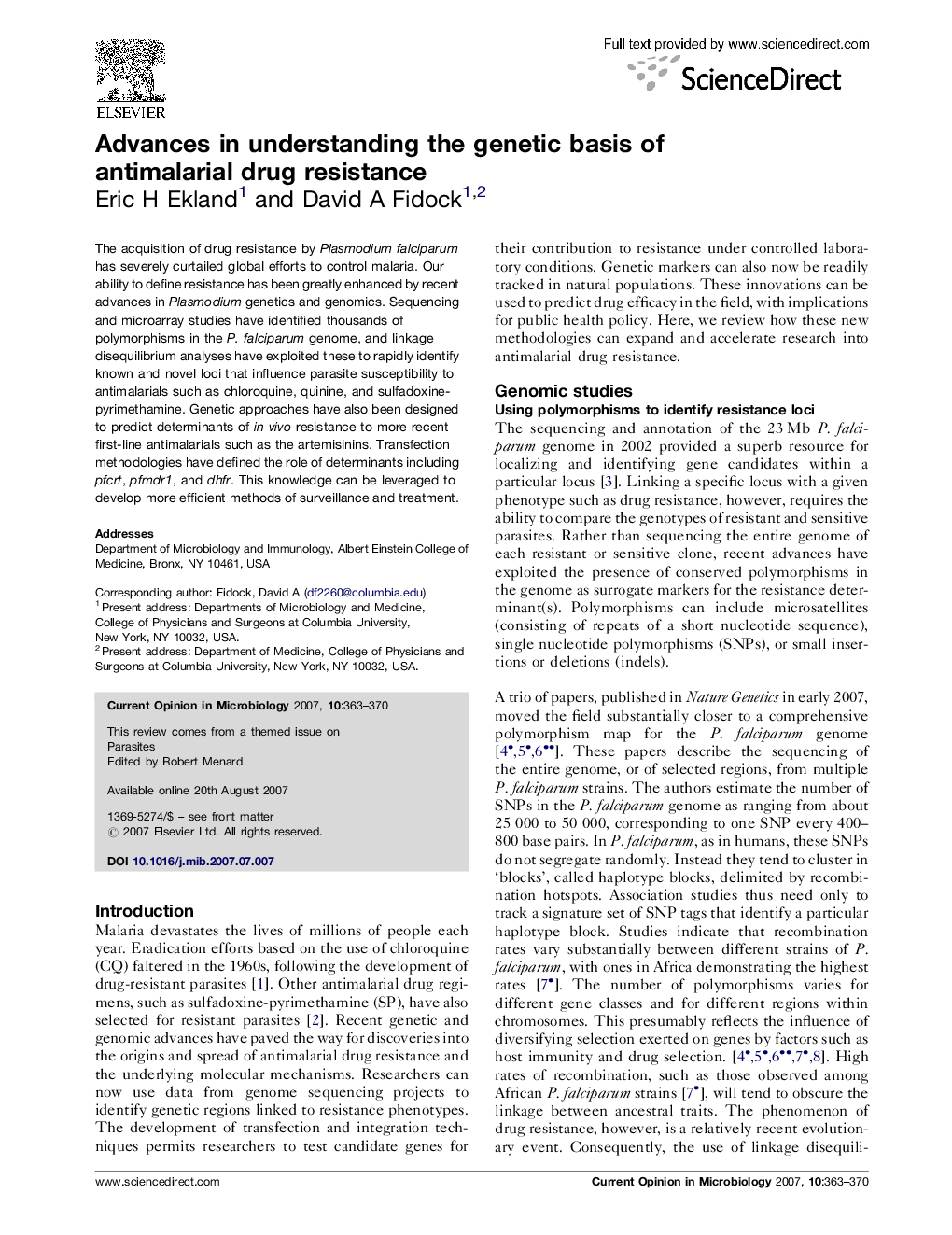| Article ID | Journal | Published Year | Pages | File Type |
|---|---|---|---|---|
| 3399652 | Current Opinion in Microbiology | 2007 | 8 Pages |
The acquisition of drug resistance by Plasmodium falciparum has severely curtailed global efforts to control malaria. Our ability to define resistance has been greatly enhanced by recent advances in Plasmodium genetics and genomics. Sequencing and microarray studies have identified thousands of polymorphisms in the P. falciparum genome, and linkage disequilibrium analyses have exploited these to rapidly identify known and novel loci that influence parasite susceptibility to antimalarials such as chloroquine, quinine, and sulfadoxine-pyrimethamine. Genetic approaches have also been designed to predict determinants of in vivo resistance to more recent first-line antimalarials such as the artemisinins. Transfection methodologies have defined the role of determinants including pfcrt, pfmdr1, and dhfr. This knowledge can be leveraged to develop more efficient methods of surveillance and treatment.
